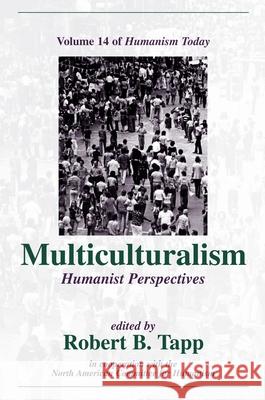Multiculturalism: Humanist Perspectives » książka
Multiculturalism: Humanist Perspectives
ISBN-13: 9781573928052 / Angielski / Twarda / 2000 / 266 str.
Multiculturalism has become an ambiguous but potent battle cry in U.S. society, lauded by proponents as a call to tolerate different cultural traditions and values, and deplored by detractors as an attack on the highest standards of Western culture. This anthology explores this controversial social movement from various humanist perspectives.
Building on an Enlightenment cosmopolitanism, humanists have critically evaluated all cultures, especially their own. From this stance, contentions involving race, gender, sexual orientation, class, religion, ethnicity, and nation can be freshly assessed among the competing claims of the rapidly hybridizing yet polarizing world into which we are moving. Although any attempt to impose a specific vision on this multifarious global community will clearly fail, a noncritical relativism will just as certainly lead to anarchy. Humanism's combined use of critical reason in the developing sciences and an ethical wisdom that transcends past traditions points toward a way to live and learn together, while improving ourselves in the process.
Unfortunately, most nations and most religions persist in focusing on their own perceived superiority, relying on historical claims and traditional authorities. Humanists make no such claims but appeal to the potentialities of human values emerging in a post-traditional world. This volume provides the outlines of the directions such consensus-building might take. The distinguished contributors include Khoren Arisian, Vern L. Bullough, Howard Callaway, Paul Kurtz, Sarah W. Oelberg, Don Page, Howard Radest, Andreas Rosenberg, Harvey Sarles, Robert B. Tapp, Michael Werner, and Carol Wintermute.











